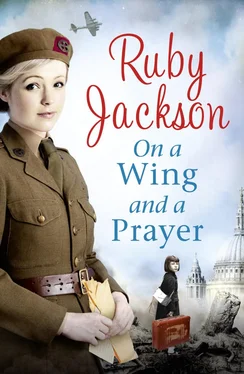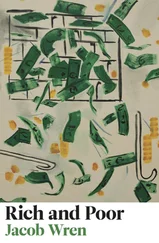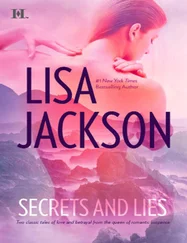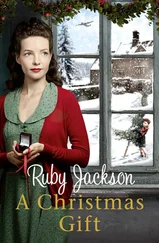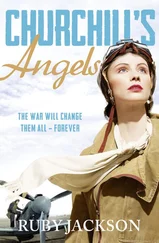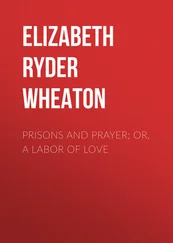Published by HarperCollins Publishers Ltd
1 London Bridge Street
London SE1 9GF
www.harpercollins.co.uk
First published in Great Britain by Harper 2015
Copyright © HarperCollins Publishers Ltd 2015
Cover layout design © HarperCollins Publishers Ltd 2015
Cover photographs © Johnny Ring (woman’s face); Colin Thomas (woman’s body); Popperfoto/Contributor/Getty Images (refugee girl); Shutterstock.com (letter, plane, suitcase, background)
Ruby Jackson asserts the moral right to be identified as the author of this work.
A catalogue copy of this book is available from the British Library.
This novel is entirely a work of fiction. The names, characters and incidents portrayed in it are the work of the author’s imagination. Any resemblance to actual persons, living or dead, events or localities is entirely coincidental.
All rights reserved under International and Pan-American Copyright Conventions. By payment of the required fees, you have been granted the non-exclusive, non-transferable right to access and read the text of this e-book on screen. No part of this text may be reproduced, transmitted, down-loaded, decompiled, reverse engineered, or stored in or introduced into any information storage and retrieval system, in any form or by any means, whether electronic or mechanical, now known or hereinafter invented, without the express written permission of HarperCollins.
Source ISBN: 9780007506293
Ebook Edition © April 2015 ISBN: 9780007506309
Version: 2015-03-04
For Patrick O’Donnell and Dr Gary Colner with much love.
Contents
Cover
Title Page
Copyright Published by HarperCollins Publishers Ltd 1 London Bridge Street London SE1 9GF www.harpercollins.co.uk First published in Great Britain by Harper 2015 Copyright © HarperCollins Publishers Ltd 2015 Cover layout design © HarperCollins Publishers Ltd 2015 Cover photographs © Johnny Ring (woman’s face); Colin Thomas (woman’s body); Popperfoto/Contributor/Getty Images (refugee girl); Shutterstock.com (letter, plane, suitcase, background) Ruby Jackson asserts the moral right to be identified as the author of this work. A catalogue copy of this book is available from the British Library. This novel is entirely a work of fiction. The names, characters and incidents portrayed in it are the work of the author’s imagination. Any resemblance to actual persons, living or dead, events or localities is entirely coincidental. All rights reserved under International and Pan-American Copyright Conventions. By payment of the required fees, you have been granted the non-exclusive, non-transferable right to access and read the text of this e-book on screen. No part of this text may be reproduced, transmitted, down-loaded, decompiled, reverse engineered, or stored in or introduced into any information storage and retrieval system, in any form or by any means, whether electronic or mechanical, now known or hereinafter invented, without the express written permission of HarperCollins. Source ISBN: 9780007506293 Ebook Edition © April 2015 ISBN: 9780007506309 Version: 2015-03-04
Dedication For Patrick O’Donnell and Dr Gary Colner with much love.
Chapter ONE
Chapter TWO
Chapter THREE
Chapter FOUR
Chapter FIVE
Chapter SIX
Chapter SEVEN
Chapter EIGHT
Chapter NINE
Chapter TEN
Chapter ELEVEN
Chapter TWELVE
Chapter THIRTEEN
Chapter FOURTEEN
Chapter FIFTEEN
Chapter SIXTEEN
Chapter SEVENTEEN
Chapter EIGHTEEN
Chapter NINETEEN
Chapter TWENTY
Chapter TWENTY-ONE
Chapter TWENTY-TWO
Chapter TWENTY-THREE
Chapter TWENTY-FOUR
Chapter TWENTY-FIVE
Chapter TWENTY-SIX
Acknowledgements
Churchill Angels Ad
Wave Me Goodbye Ad
A Christmas Gift Ad
Churchill’s Angels Extract
W6 Ad
About the Author
Also by Ruby Jackson
About the Publisher
April 1942
‘It’s still so strange not to see Daisy sound asleep when I wake up early, Dad. The house is so quiet; when will it feel normal?’
Fred looked up from the front page of the Sunday paper. ‘When it is normal, pet, and your mum and me is hoping that’ll be soon. You’re an absolute godsend, our Rose. Kept your mum sane, you have.’ He went back to the lead article.
Rose stood quietly for a moment. Was this the time to say something, to say that she had been thinking for rather a long time that she needed a change, a chance to do something different? Could she say, ‘Remember in February when I had a bad head cold and didn’t go to evensong? Remember I caught Mr Churchill on the wireless, heard the whole thing, instead of catching just a bit as usual? I thought then – I’ve got to do something more, like Daisy and the others. When this war ends I’d like to have done something besides factory work’? She looked over at her father, relaxing in his armchair, his waistcoat for once unbuttoned, and decided not to disturb his one morning of relative peace and quiet.
She folded up the section of the Sunday paper she had been reading and almost slapped it down on the little table between them, inadvertently causing her father to jump. ‘Sorry, didn’t mean to do that. I’m off for a run. Nothing but doom and gloom in the Post this morning.’
‘Don’t forget Miss Partridge is taking her Sunday dinner with us – suppose we’ll have to call it “lunch” since it’s Miss Partridge – so don’t be late.’
Rose promised she wouldn’t be and, after changing her ‘going to church clothes’ for something suitable for running, she hurried away. Effortlessly, she jogged out of the town, past houses where heavily laden and sweetly scented lilac trees leaned over garden walls, tantalising passers-by with their perfume; past Dartford Grammar School, where she pretended not to see the enormous reserve water supply tank, which had been installed the year the war broke out as one of the many preparations for conflict. Would an enemy aircraft bomb it and flood the many lovely gardens in this part of the town? She hoped not. Since May of the year before, England had been experiencing a lull in the bombing raids from Germany and from the closer German bases in occupied Holland and France. But the worst part of a lull was that one never knew when it would end. In some ways this uncertainty was worse than nightly attacks. At least then people knew what to expect.
Rose changed direction to run through Central Park, formerly a favourite meeting place for local residents, especially on Sundays when families strolled among the flowerbeds. These days anxious parents preferred to stay at home rather than take a Sunday walk with one eye always on the sky and ears straining for the threatening sound of aircraft. Out of the park she ran, further and further into the countryside, now carpeted with spring flowers. She wondered if she had ever seen such stretches of golden buttercups; they were everywhere. Who could not feel happy just by seeing them? Fruit trees, too, showed off their mantles of pink or white blossom as they swayed in the gentle breeze. Who could believe that this glorious garden could possibly be a small part of a huge battlefield?
Rose began to run towards the river, revelling in the feeling of absolute freedom, enjoying stretching her long legs. She stopped, not because she was tired or stiff but because she wanted to stand still and breathe in the clear air. How absolutely beautiful it was. Everything was perfect. The blue sky was decorated with the remains of white vapour trails, showing where aircraft had passed. In the fields below and around her, green shoots were poking up through the soil and, some distance away, untethered horses were grazing. Smiling, Rose pretended that there was no war; there had never been a war and all was well with the world. She decided to run as far as Ellingham ponds, those little man-made pools that had been created when gravel and sand quarrying had stopped just before war had broken out. Horses had drunk from them; migrating birds or local wildfowl had nested there. The ponds were hardly objects of beauty now: every one was camouflaged with wire netting on a floating wooden frame, so that German airmen, sent to destroy the nearby Vickers munitions works, could not use reflections from the water as an aid to navigation.
Читать дальше
